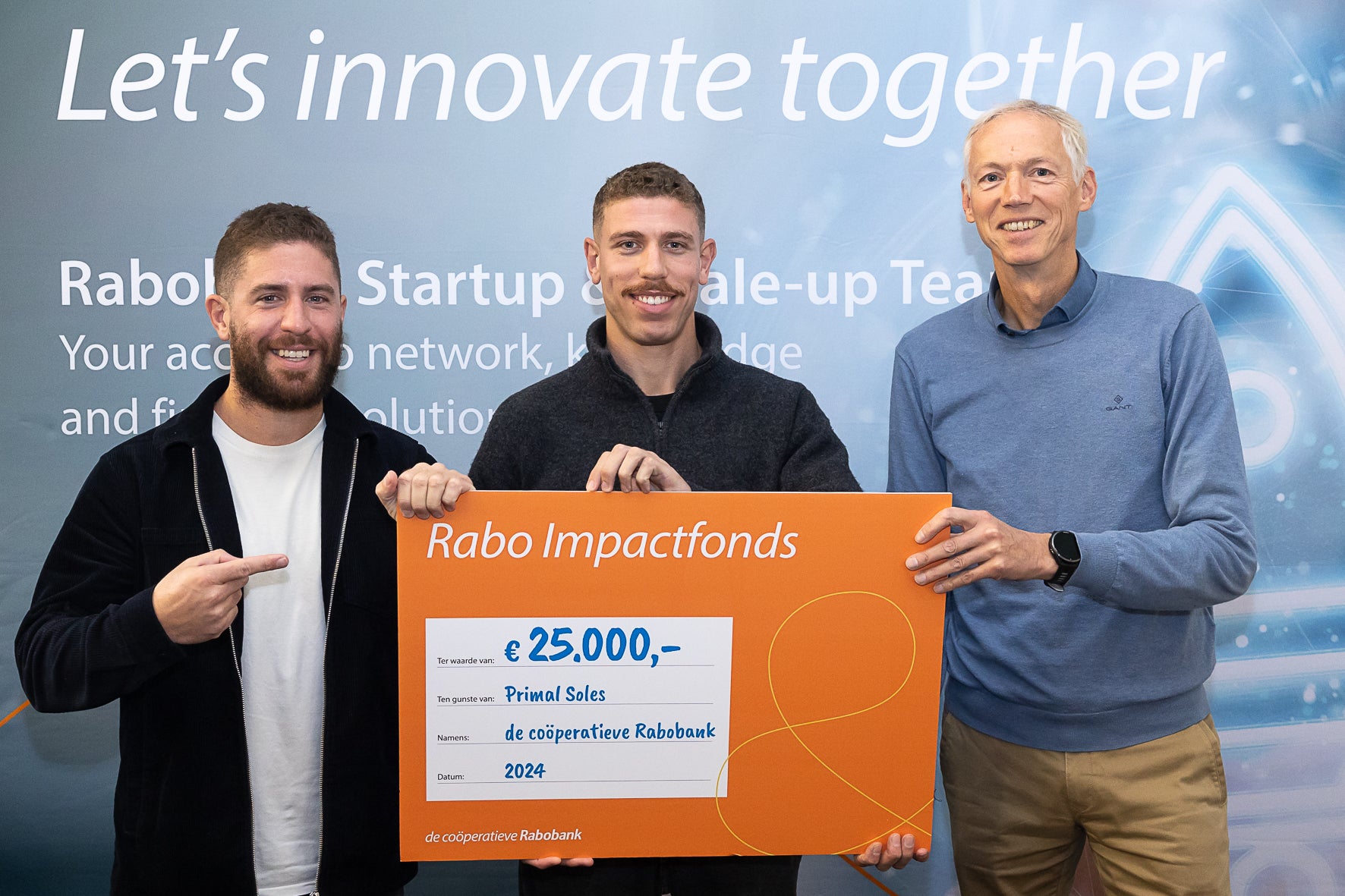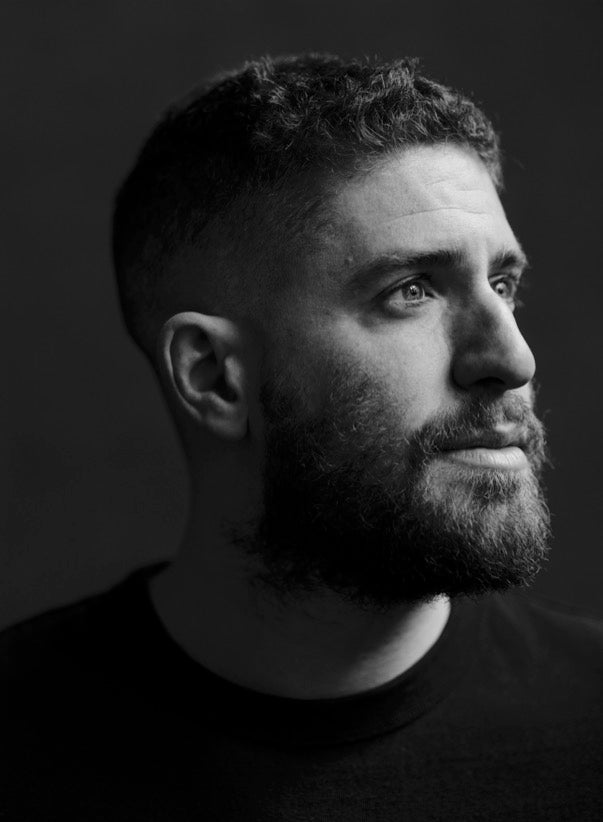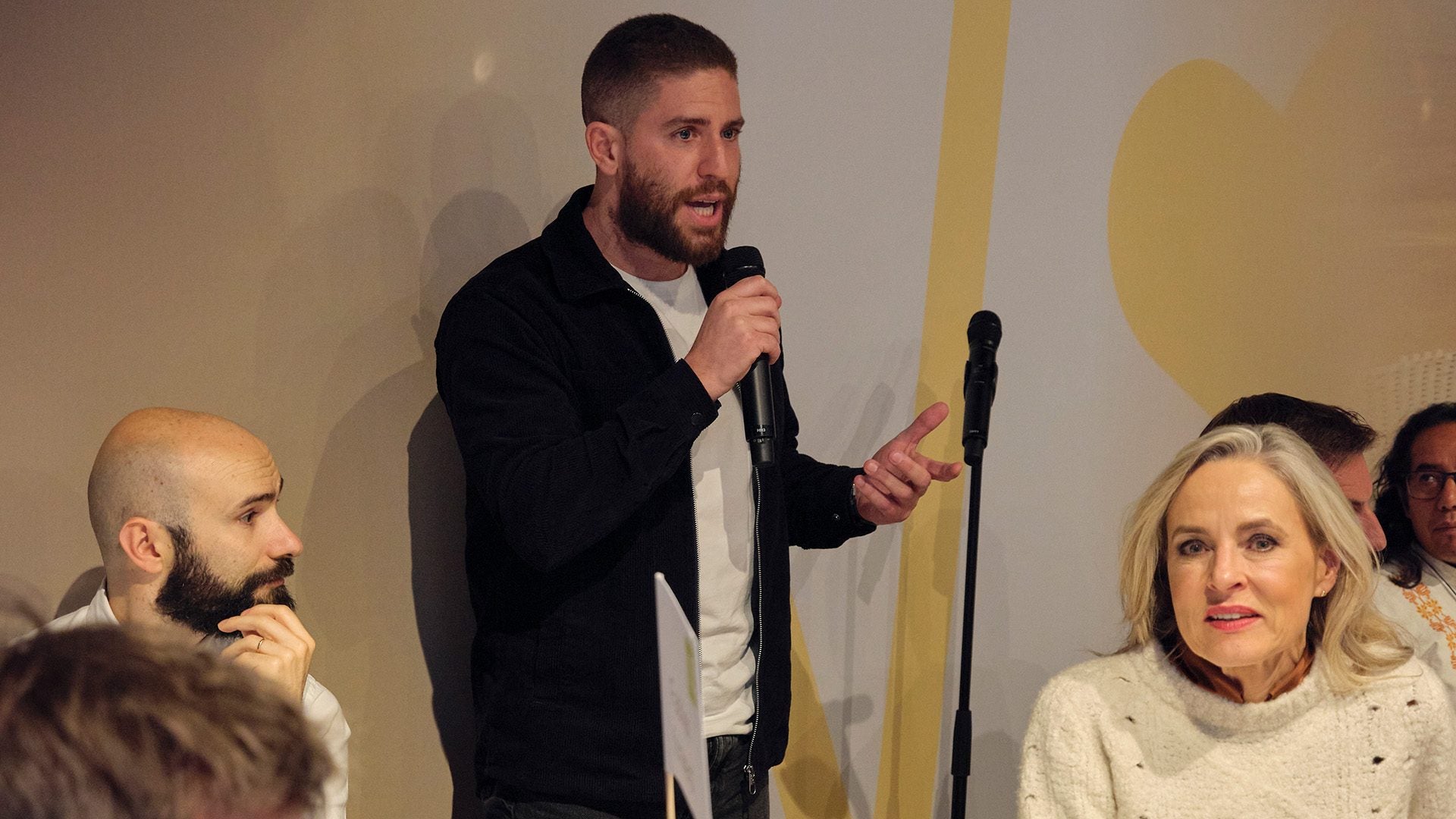Mattrass + shoe = shoe insole and a circular ecosystem. That was the brainwave that came to David Even while spending time in Greece a few years ago. After quitting his job at a well-known mattress manufacturer, he hit the pause button to muse over his next move. “I’d spend a chunk of my days reading,” says David, reminiscing on that rest time. “One of the books I picked up was Shoe Dog, the memoir of the founder of Nike. While I was trying to plan for my future, my mind was consumed by two things: mattresses and shoes. I’ve no idea why, but that reminded me of shoe insoles – they’re basically mattresses for your feet. I feel a responsibility to protect the earth, so my mind led me to an idea of a circular ecosystem to make shoe insoles out of cork. That’s how Primal Soles started out.”
60,000 cork slippers
Primal Soles has come on in leaps and bounds since David’s initial brainwave, winning the Financial Times’ Responsible Business Education Awards in 2023. David ordered a design for the shoe insoles, found a manufacturer in Portugal, opened an online store, closed a deal with Decathlon, brought his brother Jeremy into the business, and came up with a brand-new product: cork slippers. In collaboration with Hotel Jakarta in Amsterdam, Primal Soles is now running a pilot to produce 60,000 slippers. This proof of concept will show whether there’s potential to upscale slipper production, and whether the hotel could feasibly break its habit of importing synthetic slippers from Asian manufacturers. The slippers will also be trialed by Amsterdam’s Waldorf Astoria hotel soon.
Negative carbon footprint
David is aware that sustainability is a major reason for customers to purchase Primal Soles’ products. “We get top grades in that respect. Our circular ecosystem is sustainable in and of itself, but we take things one step further by keeping the entire process in-house. Every shoe insole or slipper sold can be returned to us at the end of its life. We’ll then reuse that material in the production process, saving it from landfill. The upper layer of the sole is always made of freshly harvested cork, while the bottom layer is made of recycled material.”
Primal Soles’ shoe insoles and slippers aren’t just sustainable: They’re carbon-negative. “It takes about nine years for a cork tree to regrow its bark after harvest. In those nine years, the tree absorbs 73 times more CO2 than we emit to manufacture our slippers and shoe insoles,” explains David. Our operations are still carbon-negative even if you account for the CO2 emissions from our Portuguese manufacturer, shipping to the Netherlands, and returns and transport to Portugal.”
Crucial donation
Following the pattern of many other start-ups, Primal Soles reached a phase in which it needed capital to grow its business. In his search for funding, David got in touch with Rabobank. “It was incredibly difficult to find a partner for our pilot at Hotel Jakarta,” says David. “Many people we knew told us to contact Rabobank. It turns out they were right: We were treated really well and shown how the Rabo Impact Fund could help us. We submitted our application and secured a donation of €25,000. It came at a crucial moment – without it, we wouldn’t have been able to run the pilot.” David continues: “I should say that having access to the bank’s network was just as valuable. We’ve made tons of new connections, including with hotels in and around the famous Flower Bulb Region. Here’s hoping they place some big orders.” Chuckling, David says: “If we end up having to make slippers for ten hotels, we’ll need to apply for a loan! Fortunately for us, we know which bank to call. At the end of the day, we and Rabobank are on the same path: We want to inspire the next generation of businesses and show they can make an impact.”
Every breakthrough counts
Frank Grootnibbelink is a member of the Sustainable Business advisory board of coöperatieve Rabobank Bollenstreek. He was tasked, alongside other members of the boards, with assessing Primal Soles’ application. “The donation was approved unanimously. Primal Soles is a shining example of how a young company can make a big impact. They’ve got a quality, sustainable product that helps to combat waste. Some may say it’s a drop in the ocean, but there are many of these young, driven businesses out there. Together, they can make a difference. Every breakthrough counts. That’s why Rabobank has no reservations about supporting these companies.”
About the Rabo Impact Fund
As a cooperative bank, Rabobank invests part of its profits into community and innovative projects by associations, foundations and organizations. Precedence is given to projects that have a major impact on society and which are related to issues that Rabobank supports: the food transition, the energy transition, and the transition to a more inclusive society.
See here the aftermovie of the event: https://www.rabobank.nl/lokale-bank/nieuws/011456086/rabo-impactfonds-keert-175-000-euro-uit-op-impactfest-2024





